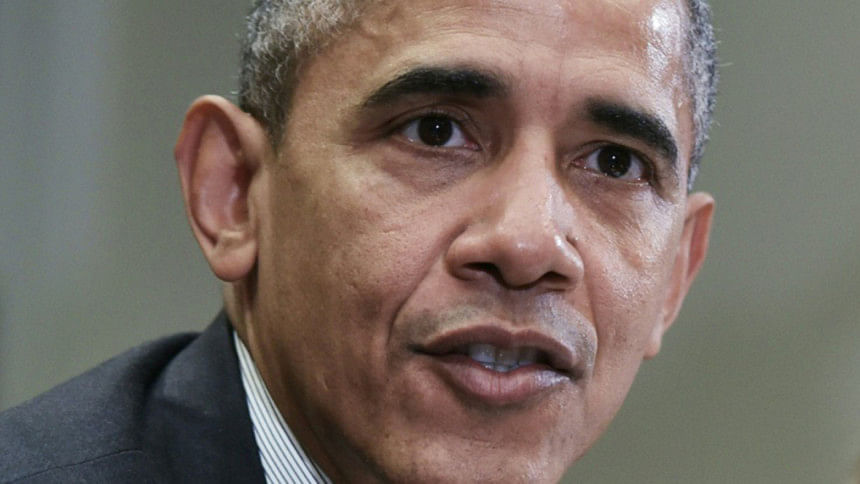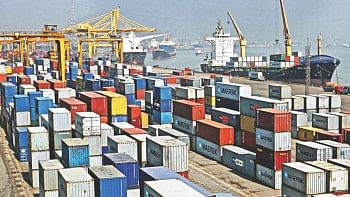Obama orders 'full review' of election cyber attacks

President Barack Obama has ordered a review of all cyber attacks that took place during the 2016 election cycle, the White House said Friday as concerns over Russian interference mount.
White House Deputy Press Secretary Eric Schultz said Obama called for the review earlier this week, amid growing calls from Congress for more information on the extent of Russian interference in the campaign.
"We are committed to ensuring the integrity of our elections and this report will dig into this pattern of malicious cyber activity timed to our elections, take stock of our defensive capabilities and capture lessons learned to make sure that we brief members of Congress and stakeholders as appropriate," said Schultz.
Obama wants the report completed before his term ends on January 20, Schultz said.
"We are going to make public as much as we can," he added. "This is a major priority for the president."
Trump denies Russian role
The move comes after Democrats in Congress pressed the White House to reveal details, to Congress or to the public, of Russian hacking and disinformation in the election.
It also comes after President-elect Donald Trump rejected the intelligence community finding of official Russian involvement.
Confidential emails from the Democratic National Committee and John Podesta, a top advisor to Democratic nominee Hillary Clinton, were steadily leaked out via WikiLeaks in the months before the election, damaging Clinton's White House effort.
On October 7, one month before the election, the Department of Homeland Security and the Director of National Intelligence announced that "the Russian Government directed the recent compromises of emails from US persons and institutions, including from US political organizations."
"These thefts and disclosures are intended to interfere with the US election process," they said.
But in an interview published Wednesday with Time magazine for its "Person of the Year" award, Trump dismissed those findings. Asked whether the intelligence was politicized, Trump answered: "I think so."
"I don't believe they interfered," he said. "It could be Russia. And it could be China. And it could be some guy in his home in New Jersey."
Worried that Trump will sweep the issue under a rug after his inauguration, seven Democrats on the Senate Intelligence Committee called on November 29 for the White House to declassify what it knows about Russian interference.
The seven have already been briefed on the classified details, suggesting they believed there is more information that the public should know.
Then on Tuesday of this week, leading House Democrats called on Obama to give members of the entire Congress a classified briefing on Russian interference, from hacking to the spreading of fake news stories to mislead US voters.
Republicans in Congress have also promised hearings into Russian activities once the new administration comes in.
But some have suggested the Democrats are raising the issue out of bitterness over their sweeping electoral defeat.
Schultz denied politics was behind Obama's order.
"I want to be clear here that this is not an effort to challenge the result of the election," he said.
Russian interference in Germany
Obama's homeland security advisor Lisa Monaco said the cyber interference goes back to the 2008 presidential race, with both the Obama and John McCain campaigns hit by malicious computer intrusions.
"We have seen in 2008 and in this last election system malicious cyber activity. We maybe [have] crossed into a new threshold and it is incumbent upon us to take stock of that," said Monaco.
Russian hacking and election interference have also become a big issue in Germany.
On Thursday Germany's domestic intelligence agency BfV issued a stark warning over a rising Moscow-directed campaign of hacking and misinformation directed at "destabilizing" the country and influencing political discourse.
Last week WikiLeaks published stolen documents on intelligence activities that embarrassed Chancellor Angela Merkel just as she began campaigning for the elections slated for late 2017.
"In the political realm, we detect an increasingly aggressive cyber espionage, warned BfV chief Hans-Georg Maassen.
"The indications of attempts to influence the German parliamentary elections next year are intensifying."

 For all latest news, follow The Daily Star's Google News channel.
For all latest news, follow The Daily Star's Google News channel. 



Comments